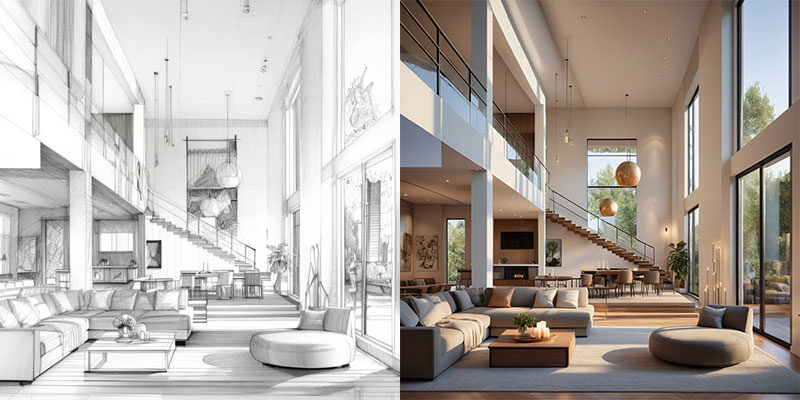Пригласите Друзья и Получите Бесплатные Монеты для Обоих

1957
Alexandru Bulmaga
Генератор изображений на основе ИИ
v1
Maia Sandu is a politician who became the first woman president of Moldova. She was born on May 24, 1972. Prior to her political career, Maia Sandu worked for various international organizations, including the World Bank and the European Bank for Reconstruction and Development.
Sandu became known as an activist and politician fighting to fight corruption and reform Moldova's political system. Her political career includes leading the Moldovan Platform "Dignity and Truth" and serving as Moldova's Minister of Ecology and Natural Resources.
When Sandu was elected president of Moldova in 2020, it marked an important moment in the country's history, marking her as the first woman and the first non-party elite president to lead the country. Her program stated priorities to fight corruption, strengthen democracy and develop the economy.
Her leadership has been accompanied by challenges, including political tensions within the country and difficulties in managing economic and social problems. However, her determination and persistence in reforming and strengthening democracy in Moldova leave hope for positive change in the country.
Moldova, a small landlocked country in Eastern Europe, holds a rich tapestry of history, culture, and natural beauty. Here's how I see it:
Cultural Diversity: Moldova boasts a diverse cultural heritage, influenced by its history of various rulers and neighbors. This diversity is reflected in its traditions, cuisine, music, and arts, blending elements of Romanian, Russian, Ukrainian, and other cultures.
Beautiful Landscapes: The country is adorned with picturesque landscapes, from rolling hills and fertile plains to vineyards that produce renowned wines. The Dniester River cuts through the countryside, offering scenic views and recreational opportunities.
Challenges and Resilience: Moldova faces socio-economic challenges, including poverty, corruption, and emigration. Despite these obstacles, its people demonstrate resilience and determination to overcome difficulties and build a better future.
European Integration: Moldova has expressed aspirations for closer integration with the European Union while maintaining ties with neighboring countries. This balancing act reflects its strategic position between East and West and its desire for economic development and political stability.
Wine Culture: Moldova is celebrated for its wine-making traditions, with vineyards covering vast expanses of its countryside. Wine production is not just an industry but also a cultural symbol, with wine festivals and tastings showcasing the country's viticultural heritage.
Historical Significance: Moldova has a rich historical heritage, with landmarks such as medieval fortresses, Orthodox monasteries, and Soviet-era monuments dotting its landscape. These sites bear witness to the country's complex past and contribute to its identity.
Overall, Moldova is a nation with a blend of challenges and potential, characterized by its rich cultural mosaic, natural beauty, and aspirations for progress and integration on the European stage.
Соотношение:
1:1
0
Ремикс
0
НравитсяПока нет комментариев
Больше похожего контента
1957
Alexandru Bulmaga
Генератор изображений на основе ИИ
v1
Maia Sandu is a politician who became the first woman president of Moldova. She was born on May 24, 1972. Prior to her political career, Maia Sandu worked for various international organizations, including the World Bank and the European Bank for Reconstruction and Development.
Sandu became known as an activist and politician fighting to fight corruption and reform Moldova's political system. Her political career includes leading the Moldovan Platform "Dignity and Truth" and serving as Moldova's Minister of Ecology and Natural Resources.
When Sandu was elected president of Moldova in 2020, it marked an important moment in the country's history, marking her as the first woman and the first non-party elite president to lead the country. Her program stated priorities to fight corruption, strengthen democracy and develop the economy.
Her leadership has been accompanied by challenges, including political tensions within the country and difficulties in managing economic and social problems. However, her determination and persistence in reforming and strengthening democracy in Moldova leave hope for positive change in the country.
Moldova, a small landlocked country in Eastern Europe, holds a rich tapestry of history, culture, and natural beauty. Here's how I see it:
Cultural Diversity: Moldova boasts a diverse cultural heritage, influenced by its history of various rulers and neighbors. This diversity is reflected in its traditions, cuisine, music, and arts, blending elements of Romanian, Russian, Ukrainian, and other cultures.
Beautiful Landscapes: The country is adorned with picturesque landscapes, from rolling hills and fertile plains to vineyards that produce renowned wines. The Dniester River cuts through the countryside, offering scenic views and recreational opportunities.
Challenges and Resilience: Moldova faces socio-economic challenges, including poverty, corruption, and emigration. Despite these obstacles, its people demonstrate resilience and determination to overcome difficulties and build a better future.
European Integration: Moldova has expressed aspirations for closer integration with the European Union while maintaining ties with neighboring countries. This balancing act reflects its strategic position between East and West and its desire for economic development and political stability.
Wine Culture: Moldova is celebrated for its wine-making traditions, with vineyards covering vast expanses of its countryside. Wine production is not just an industry but also a cultural symbol, with wine festivals and tastings showcasing the country's viticultural heritage.
Historical Significance: Moldova has a rich historical heritage, with landmarks such as medieval fortresses, Orthodox monasteries, and Soviet-era monuments dotting its landscape. These sites bear witness to the country's complex past and contribute to its identity.
Overall, Moldova is a nation with a blend of challenges and potential, characterized by its rich cultural mosaic, natural beauty, and aspirations for progress and integration on the European stage.
Соотношение:
1:1
0
Ремикс
0
НравитсяПока нет комментариев



























